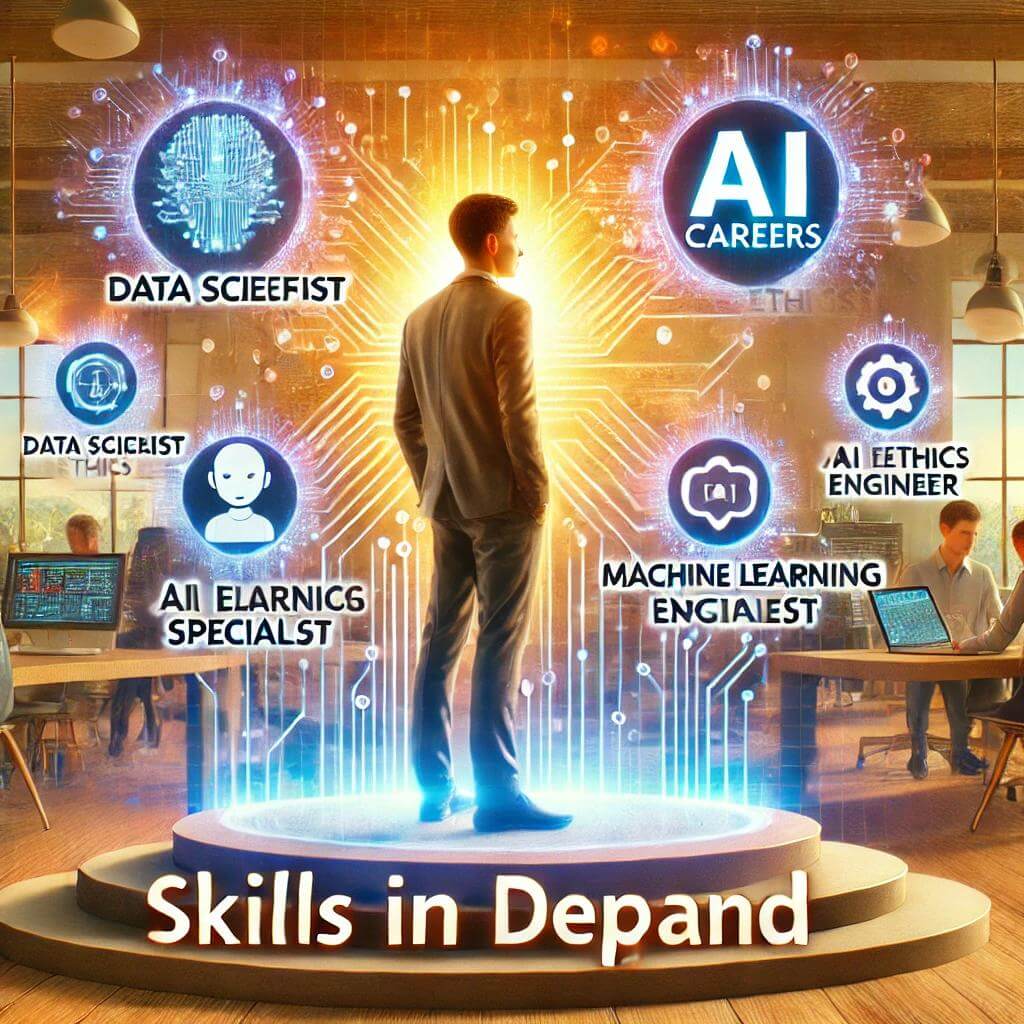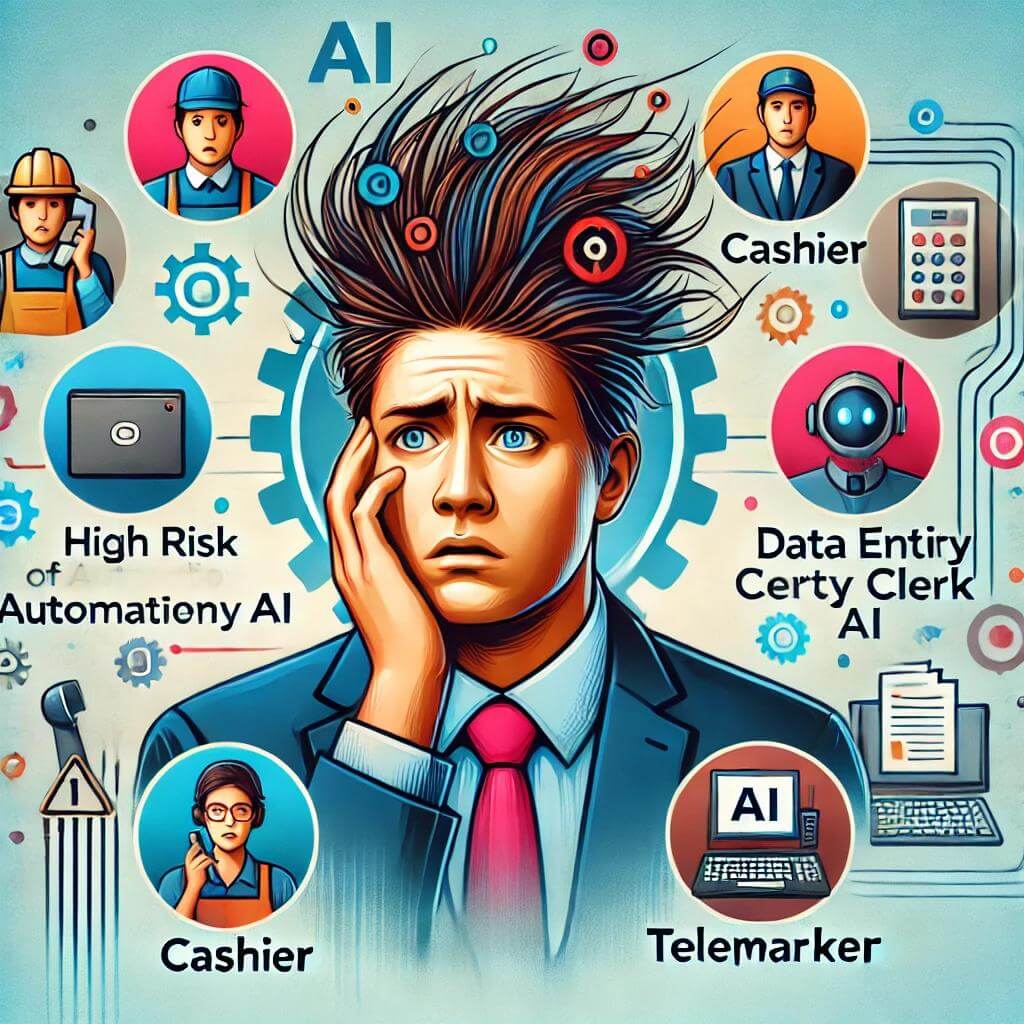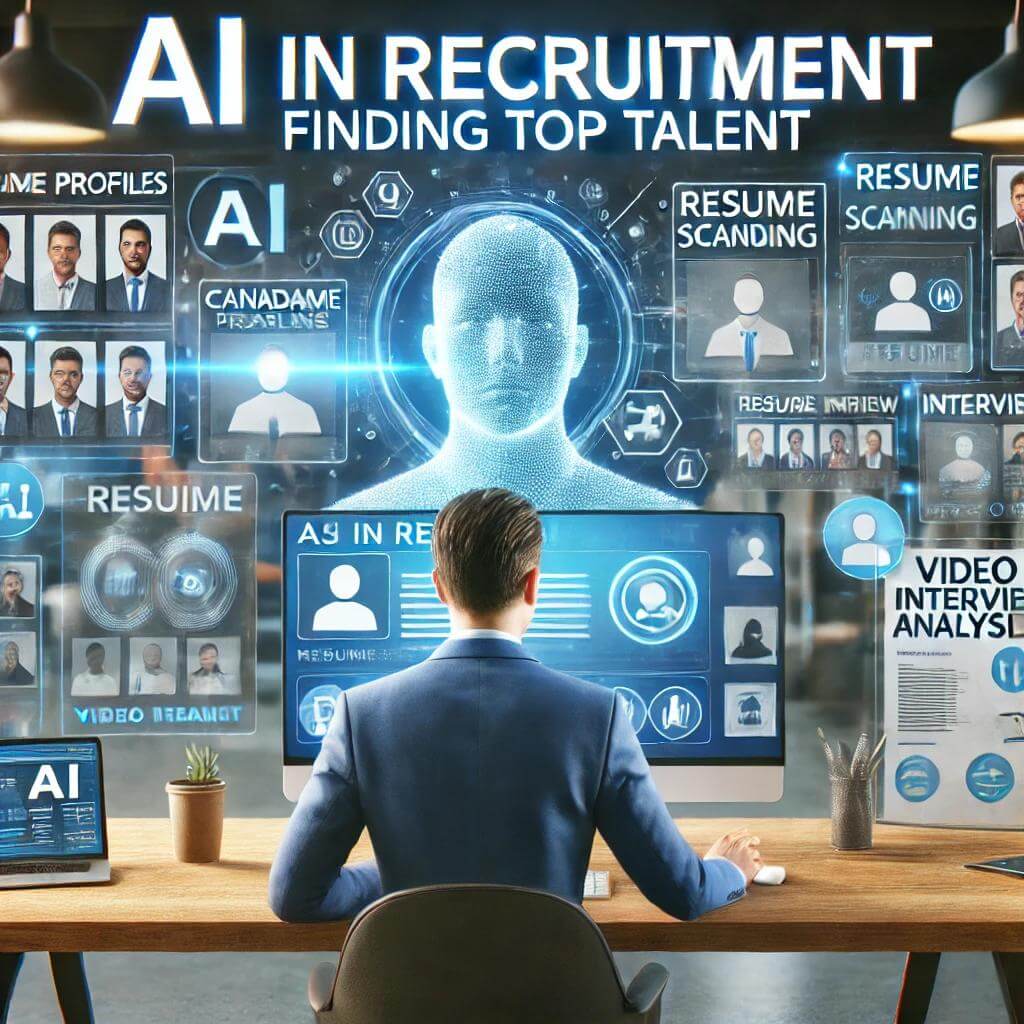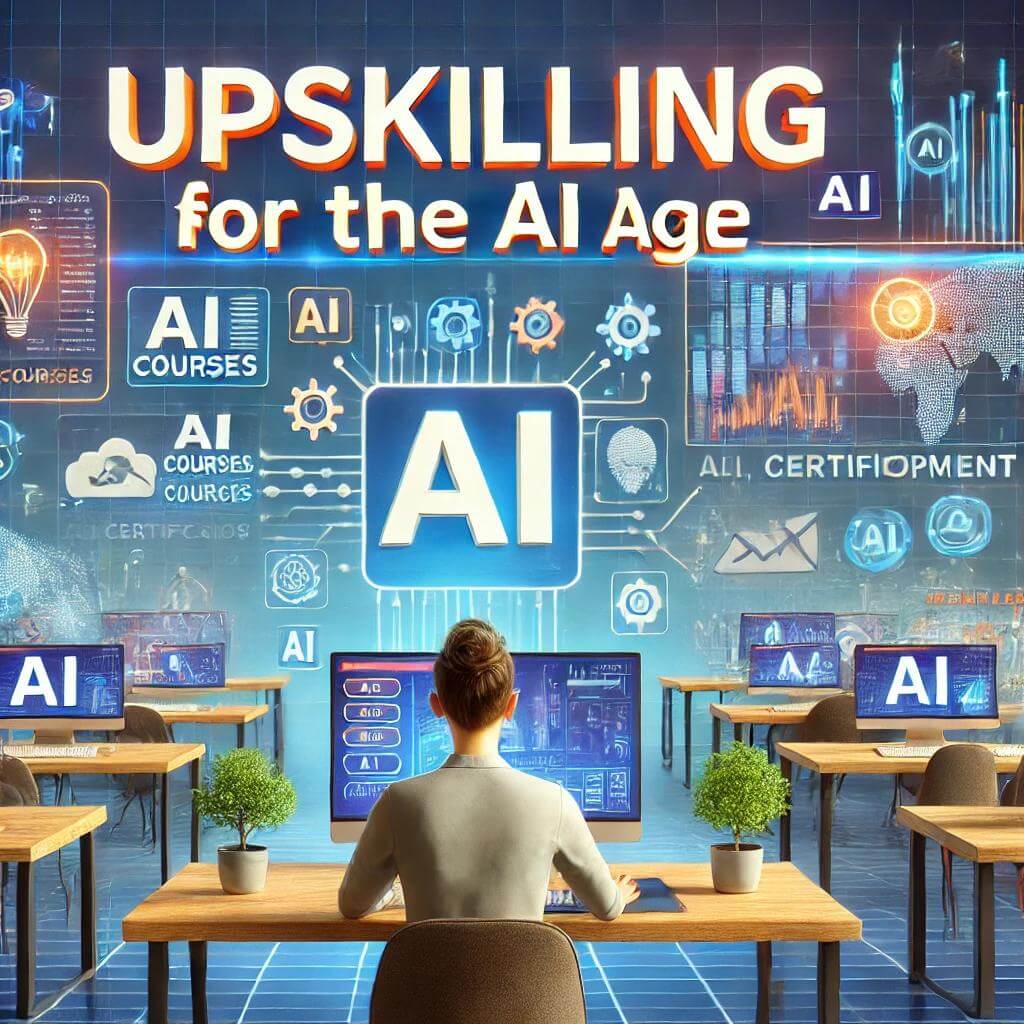Emerging Careers in AI: Skills and Roles in Demand
As Artificial Intelligence (AI) becomes integrated into various sectors, new career opportunities are arising, and the skills needed to succeed are evolving. From data science to ethical AI management, careers in AI are diverse, offering numerous paths for individuals interested in technology. This article explores the in-demand roles in AI, the essential skills required, and how these careers will shape the future job market.
In-Demand AI-Related Roles
The rapid advancement of AI has created a demand for professionals with specific expertise. Each of these roles focuses on a unique aspect of AI and requires a specialized skill set.
Data Scientists
Data scientists are essential in the AI industry, responsible for analyzing and interpreting complex data. They gather, clean, and process data to find trends and make predictions that drive business decisions.
- Key Responsibilities:
- Data collection and cleaning
- Data visualization and reporting
- Machine learning model development
AI Ethics Specialists
As AI technology grows, so do ethical concerns around its use. AI ethics specialists ensure that AI systems align with ethical standards and respect user privacy. They work closely with developers to implement ethical guidelines in AI design.
- Key Responsibilities:
- Developing ethical guidelines for AI systems
- Ensuring compliance with privacy laws
- Assessing bias and fairness in AI algorithms
Machine Learning Engineers
Machine learning engineers design and deploy algorithms that allow AI systems to learn and improve from experience. They work closely with data scientists to build models and integrate them into applications.
- Key Responsibilities:
- Designing and training machine learning models
- Optimizing algorithms for efficiency
- Deploying models into production
| Role | Responsibilities |
|---|---|
| Data Scientist | Analyzing data, building models |
| AI Ethics Specialist | Ensuring AI aligns with ethical standards |
| Machine Learning Engineer | Designing and deploying AI models |
Essential Skills for a Career in AI
The following skills are crucial for anyone looking to thrive in the AI industry. These skills are a combination of technical expertise and critical thinking abilities.
Technical Skills
- Programming Languages: Proficiency in languages like Python, R, and SQL is essential for data manipulation and model building.
- Mathematics and Statistics: Strong knowledge in probability, linear algebra, and calculus is crucial for algorithm development.
- Data Analysis and Visualization: Understanding how to analyze data and visualize results is fundamental for interpreting AI insights.
Soft Skills
- Critical Thinking: Ability to analyze complex problems and find innovative solutions.
- Communication: Effectively explaining AI insights to non-technical stakeholders is essential.
- Adaptability: As AI technology evolves, professionals must be willing to learn and adapt.
Training Pathways for AI Careers
To enter the AI field, individuals can take various educational and training routes. Whether through traditional degrees, online courses, or bootcamps, there are multiple options to gain the skills needed.
Traditional Degrees
- Bachelor’s and Master’s Degrees in Computer Science or Data Science: These programs provide a comprehensive foundation in AI and machine learning.
- PhD Programs: For those interested in research roles, a PhD offers in-depth study of advanced AI topics.
Online Courses and Certifications
- Machine Learning by Stanford University (Coursera): A well-regarded course covering fundamental machine learning concepts.
- Deep Learning Specialization by DeepLearning.AI: A series of courses focusing on neural networks and deep learning applications.
Insights into the Future Growth of AI-Centric Careers
The demand for AI-related careers is projected to grow rapidly in the coming years, as more industries adopt AI solutions. This trend will likely lead to a significant increase in job opportunities, particularly in sectors like healthcare, finance, and retail.
Industry Impact and Job Growth
- Healthcare: AI is used for diagnostics, personalized medicine, and predictive analytics, leading to demand for AI specialists in healthcare.
- Finance: AI algorithms are crucial for fraud detection and automated trading, requiring skilled machine learning engineers and data scientists.
- Retail: Personalized marketing and inventory optimization use AI, creating opportunities for data analysts and AI ethics specialists.
| Industry | AI Applications |
|---|---|
| Healthcare | Diagnostics, predictive analytics |
| Finance | Fraud detection, automated trading |
| Retail | Personalized marketing, inventory optimization |
Conclusion
The rise of AI technology has paved the way for exciting and diverse career opportunities. By acquiring the right skills and staying updated with industry trends, individuals can succeed in roles that are shaping the future of various industries. As AI continues to evolve, so too will the job market, making it an exciting time to be a part of the AI-driven workforce.




Post Comment